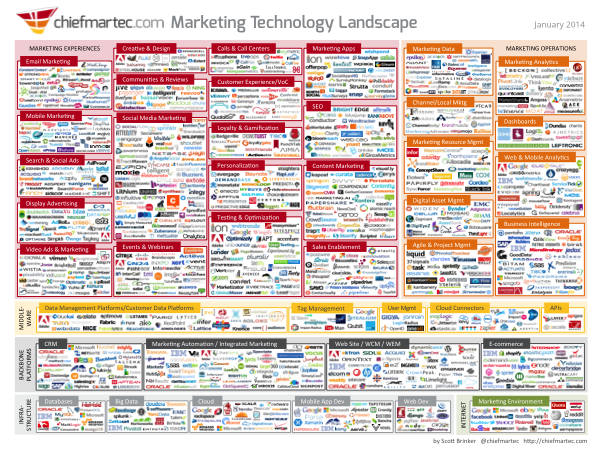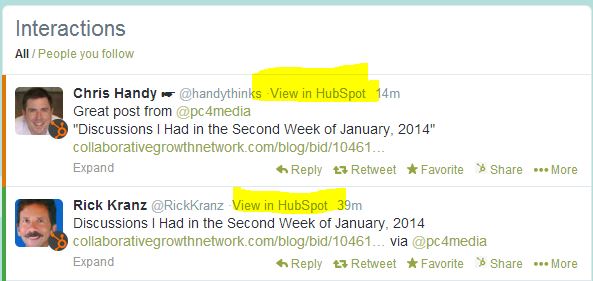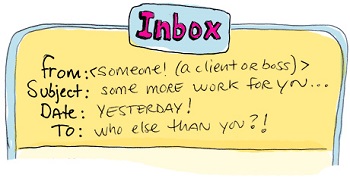Scott Brinker has released the 3rd edition of his Marketing Technology Landscape Supergraphic. I copied and pasted the graphic below.

Crazy, ha? Imagine if manufacturing or accounting folks were subject to this mess? Companies would fail. How the hell is a marketer supposed to figure out what software to buy and use? I don't think it'll be like this forever. Every year, the number of marketing software companies grow. But every year, the number of different types of marketing software companies seem to shrink as different companies enter each other's space by adding functionality.
This is the first year that Scott has broken out software into only 6 different categories: Marketing Backbone Platforms, Marketing Middleware, Marketing Infrastructure, Internet Players Impacting the Marketing Environment, Marketing Experiences and Marketing Operations. You can read the full article to see what he means by these 6 different categories. Although there is no perfect way to categorize chaos, it's the first time I've seen someone make any sense of the space so fully.
I am completely biased of course, but my prediction is that the "Marketing Backbone Platforms" will eat the space. These companies include CRM players, marketing automation providers, web content management and ecommerce engines. Of course, HubSpot falls in this category as probably the broadest platform with both marketing automation and web content management built in, plus 10s of other needed software capabilities, for seo, social, analytics, etc. Then, the marketing middleware category turns software like HubSpot into a full platform since we have both our own integrations that connect HubSpot's data and functionality to CRMs and ecommerce engines, as well as third party integrations like Bedrock and Zapier that connect us to many more systems.
Scott seems to agree that the backbond platforms and middleware will continue to bring structure to the market, "Marketing Backbone Platforms and Marketing Middleware. These two classes of products are bringing some much needed structure to the marketing technology stack." Buyers are driving this consolidiation. No buyer in their right mind would ever want to evaluate and purchase 100s of software products or even 10s of software for one function: marketing.
I'd go one step further than Scott and wager that marketing, sales and service will have one software platform. In the near term, the marketing software space will have a winner (or a small # of them) when the software makes it easy for marketers to execute a brilliant marketing strategy; a strategy that supports the sales and growth strategies of their companies. I'd further wager that that'll happen through a proven marketing methodology and an integrated, all-in-one marketing software platform.
PS. Another great article from Luma Partners dissects the valuations of marketing tech companies and ad tech companies and shows that ad tech and marketing tech are destined to collide too.




